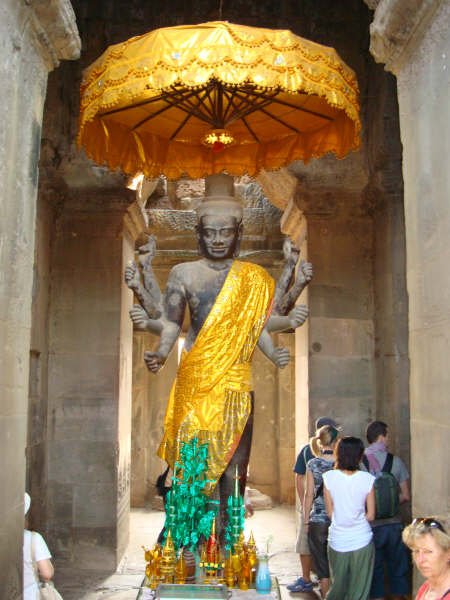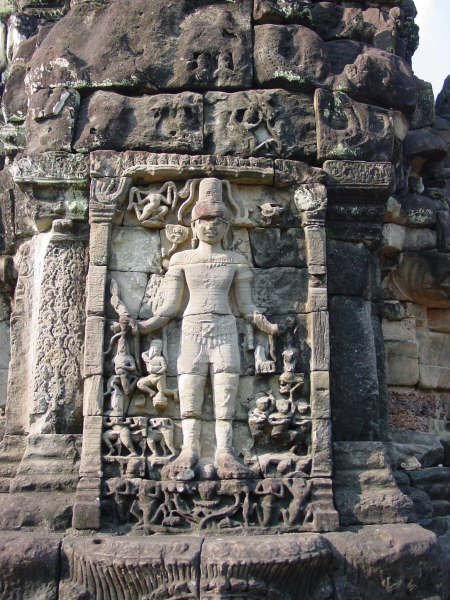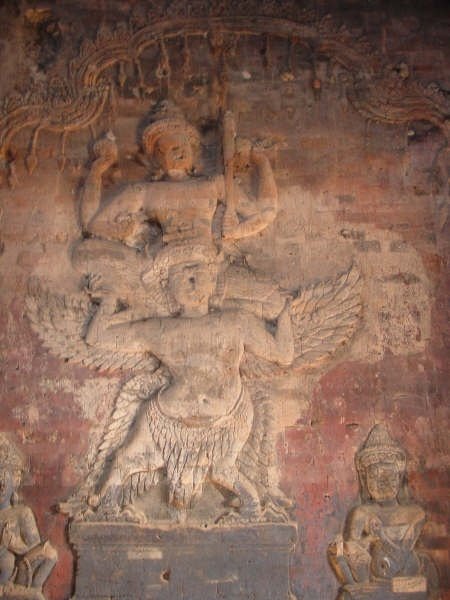With a view to fostering people to people contacts between India and Cambodia, a country which shares a historic past and culture with us, the Bharat Kambuja Maitri Samiti was formed under the guidance of His Holiness Jagadguru Shankaracharya of Sri Kanchi Kamakoti Peetam.The Samiti has launched this website http://bharatkambuja.org to showcase its aims and activities and serve as a repository of useful information. A collection of inscriptions from the Cambodian temples and a photo gallery on the website provides a glimpse of the cultural heritage of Cambodia.
About the Inscriptions
English translation of these inscriptions in Sanskrit is taken up as per the instructions of Their Holiness Jagadguru Sri Jayendra Saraswati Swamigal and His Holiness Sri Sankara Vijayendra Saraswathi Shankaracharya Swamigal of Kanchi Kamakoti Sankara math. A very brief account of the plan of translation (English) and study is given below:
There are two well documented studies of these inscriptions:
—- Studies in Sanskrit inscriptions of Cambodia by Mahesh Kumar Sharan
—- Kambuja Desa or An ancient Hindu Colony in Cambodia by R.C.Majumdar. In these studies some historical and cultural data are found
How these inscriptions have been composed in Sanskrit as early as 500 CE (roughly) is surprising as the language used is without faults, full of noble conceits and other poetic embellishments and figures of speech. Moreover, the religious tolerance and images of Gods referred in these Inscriptions show how much the rulers were interested in religion and devotion. Patronage of religious preceptors are mentioned in these inscriptions.A few verses are given below to show the scholarship of the composers of these Sanskrit inscriptions. Another fact to be noticed is that some of these inscriptions are very big compositions- No. 173 Ban That inscription of Surya varman II. pp. 438 – 455 ( in 3 sargas ).A study of these aspects as mentioned above will be undertaken.



T
The group will be conducting research on the following topics :
— Tourism
— Education
— Industry (Agricultural, Forest, Small-scale)
— Spiritual
— GOI relations, Legal
— Water Exchange Programs
— Archaeology
— Arts and Entertainment
— Medical & Ayurveda